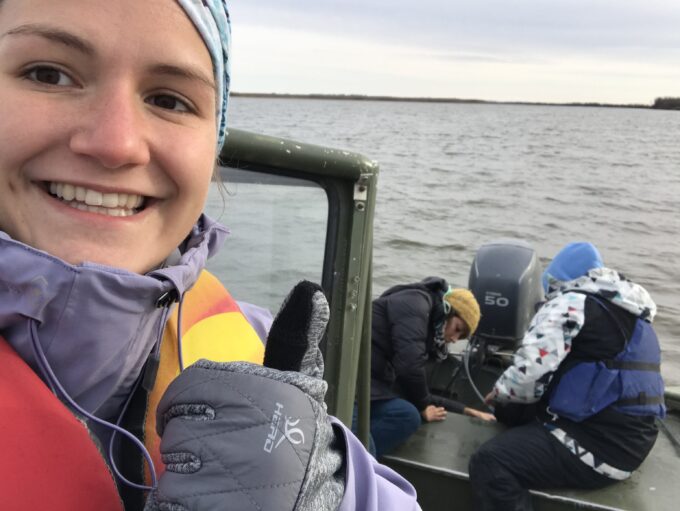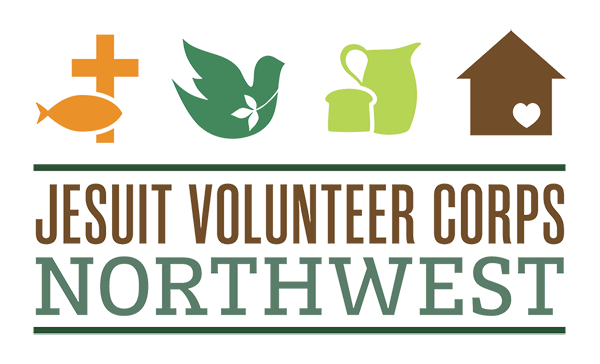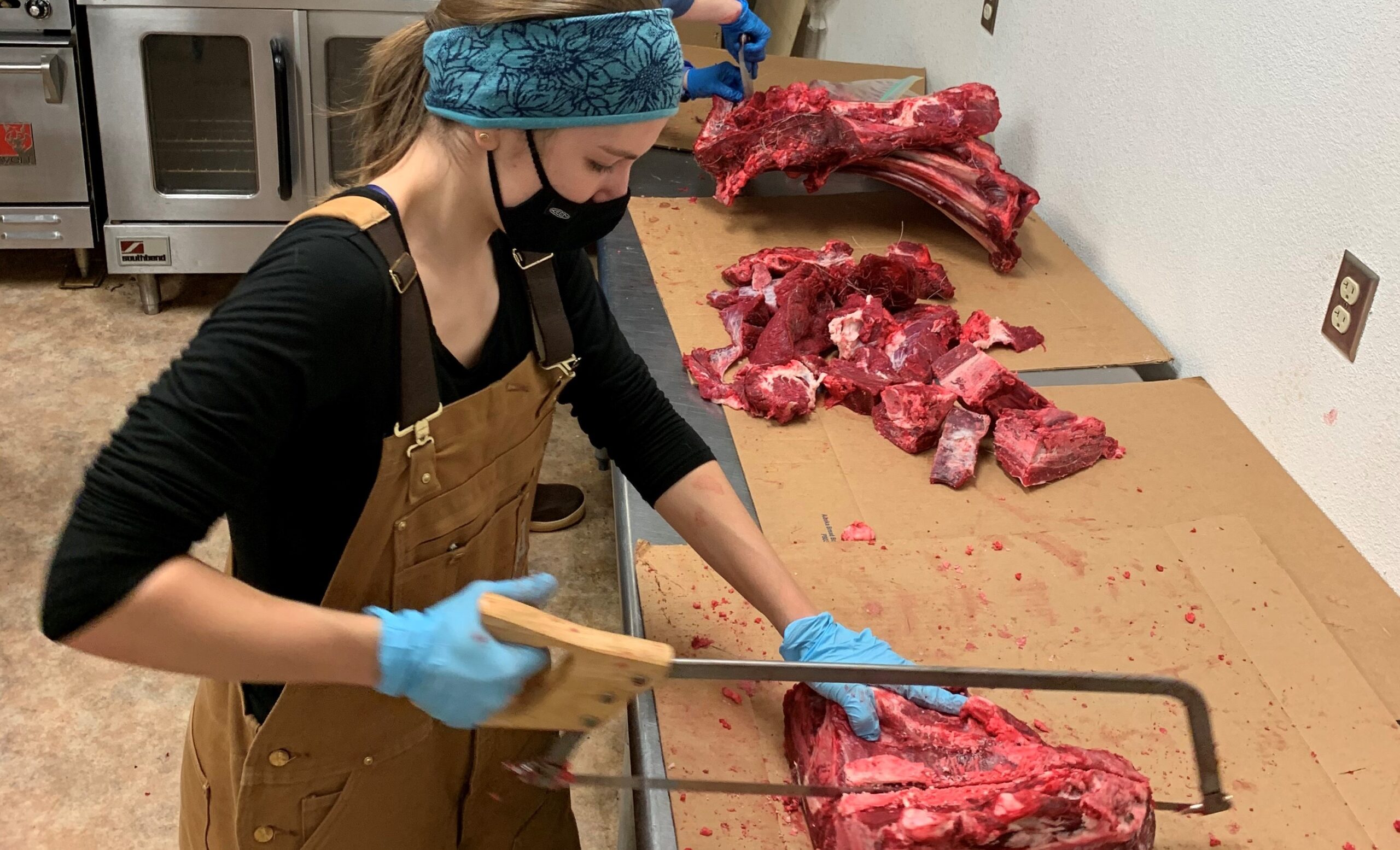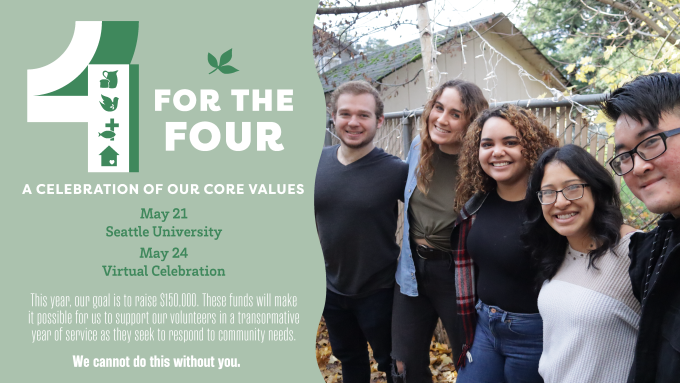Vegan in Alaska
Jesuit Volunteer AmeriCorps member Kara Black, who served as Natural Resources Technician at Orutsararmiut Native Council (ONC) in '20-21, shares her experience of coordinating a moose proxy hunt in Bethel, Alaska.
My name is Kara, and I am a JV residing on the traditional lands of the Yup’ik and Cup’ik people in the southwest region of Alaska along the Kuskokwim River.
Bethel, Alaska is a very subsistence-based community. It is incredibly rural, with only ice roads to connect it to other communities along the Kuskokwim River once the river is frozen over. Bethel is a food desert where prices at the local grocery stores are so inflated that a gallon of milk can casually cost ten dollars. Moving here as a vegan, my main concern was where my protein would come from and if I would be able to survive in my community without the typical plate of tofu and fresh vegetables. I didn’t realize what “subsistence” really meant, but I knew I would quickly find out.
One of the biggest game resources in this region is moose. Serving as the Natural Resources Technician at Orutsararmiut Native Council (ONC) in Bethel, I was immediately put in charge of coordinating and running the annual moose proxy hunt. This proxy hunt is intended to bring moose into the homes of elders, widows, and people who are disabled, blind or unable to hunt for themselves. I worked quickly to make flyers and post them around the community and on social media, make hundreds of phone calls to elders and hunters in the area, and get paperwork filed with the Alaska Department of Fish and Game.

In two weeks, 29 hunters in the community signed up to go hunting on an elder’s hunting tag and give away the whole moose. I then recruited over 30 elders who were in need of moose for the winter months. I matched up as many hunters and elders as I could, then added the others in need to a list in case we ended up with extra moose. The hunting season began on September first—and this was when we got our first moose! I had to do a lot of coordination to pick the moose up from the river, as the hunter was from a nearby village and did not have a car in Bethel. Once recovered, I called the elders on the list to see who was ready to accept moose, who wanted to process moose themselves, and who would need it pre-processed. I then had to figure out how to process the moose, as I’d never done this nor had any of my colleagues! So, we assembled a team of on-call volunteers and coordinated with the local butcher to see when and what we could bring to him.
“As a former vegan reconciling with a new way of life, I knew that no part of any moose would be wasted.”
Throughout those first two weeks of September, we received about five moose. Most of these we were able to bring to the local butcher to be processed, but one of them had to be done by our team of volunteers! It was fascinating to see local knowledge-bearers process the moose with traditional uluaqs (a knife used to prepare and cut food) and teach us how it’s done. We learned how to preserve every single part of the moose—including inner organs like the heart, tongue, brain, and eyeballs! Even more surprising to me was that every elder requested to receive parts of these organs, along with the bones and hooves.
As a former vegan reconciling with a new way of life, I knew that no part of any moose would be wasted. I learned and saw with my own eyes how loved and respected animals are in Yup’ik Indigenous culture, and I felt the ceremony and connection to gratitude that my own culture has been missing. I realized that the reasons I went vegan while living in Milwaukee, Wisconsin don’t really apply here in Bethel. I have been sharing meals of subsistence-harvested salmon and moose with my colleagues and friends at ONC with love and appreciation ever since.
This story is featured in JVC Northwest Magazine 2021. To read the digital version of the magazine and to sign up to receive future print editions, click here.



Way to go! In the mid-70s after college I worked at Togiak Fisheries – I was on a receiving freezer boat anchored up near Bethel; we bought the salmon catch from the local fisherman; the Native women cleaned it; the Japanese on board harvested the row and boxed it neatly in wooden boxes for shipment to Japan. Your story/sharing is great!